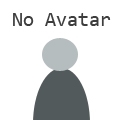·Theme
Bio:
Despite modern neo-Pagan offense taken by some at the word, "warlock" has for centuries simply meant "male witch" in common English usage. Claims that the word originates solely from an old word for "traitor" are erroneus. In extant Medieval records, male witches are often called "warlock" by Christian persecutors and judges. If one of its' meanings is indeed "traitor", then it is reasonable to assume that oaths broken were Christian oaths, and that "warlocks" were perceived as being "traitors" to Christian values and society. Many modern day male witches are reclaiming "warlock" as a positive word of power and ancient imagery, even as the word "witch" was reclaimed in years past and recast in a rightfully positive light. These men know that many who make sweeping statements about witchcraft speak only for their particular coven or tradition and not for all, despite assertions to the contrary. Several ancient words from Scandinavia and the British Isles are very plausible as being origins for the word "warlock". The Norse "Vargrliker" (one who takes on or assumes a wolf's body) and "vardlokker" (an enchanter, singer of spells or caller of spirits) are two such examples. The Old English word "waerloga" does mean "oath-breaker", but ironically, the Scottish version of the word (which anti-warlock neo-Pagans like to tout as their reason for disliking the word in the first place) does NOT. It means "cunning man" or male witch.
Despite modern neo-Pagan offense taken by some at the word, "warlock" has for centuries simply meant "male witch" in common English usage. Claims that the word originates solely from an old word for "traitor" are erroneus. In extant Medieval records, male witches are often called "warlock" by Christian persecutors and judges. If one of its' meanings is indeed "traitor", then it is reasonable to assume that oaths broken were Christian oaths, and that "warlocks" were perceived as being "traitors" to Christian values and society. Many modern day male witches are reclaiming "warlock" as a positive word of power and ancient imagery, even as the word "witch" was reclaimed in years past and recast in a rightfully positive light. These men know that many who make sweeping statements about witchcraft speak only for their particular coven or tradition and not for all, despite assertions to the contrary. Several ancient words from Scandinavia and the British Isles are very plausible as being origins for the word "warlock". The Norse "Vargrliker" (one who takes on or assumes a wolf's body) and "vardlokker" (an enchanter, singer of spells or caller of spirits) are two such examples. The Old English word "waerloga" does mean "oath-breaker", but ironically, the Scottish version of the word (which anti-warlock neo-Pagans like to tout as their reason for disliking the word in the first place) does NOT. It means "cunning man" or male witch.
Contact:
© 2024 Fanbyte LLC
